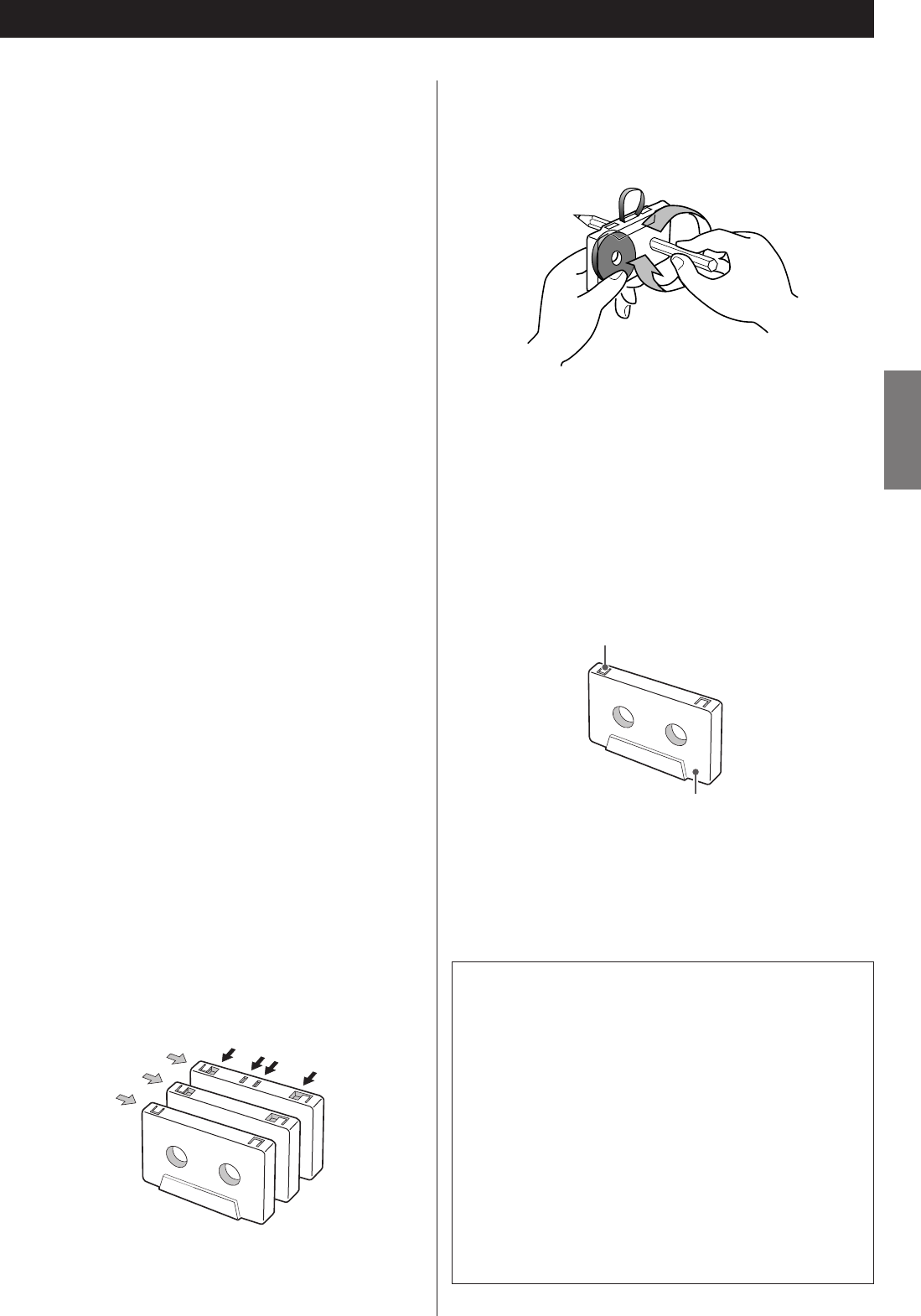
ENGLISH
5
Handling Cassette Tapes
Caution
< Do not open the cassette or pull the tape out of the cassette.
<
Do not touch the tape surface.
<
Do not use or store the tape in a humid or dusty place.
<
Keep the tape away from any magnetic sources, such as
speakers or TVs, otherwise noise may be produced during
playback or important recordings may be erased.
Cassette tapes that you should not use
Poor performance, errors, or malfunctions may result if you
use any of the tapes described below. Some of these tapes
may also cause tape clog problems that can damage the tape
transport mechanism.
Cassettes that are imperfectly shaped
Do not use a deformed cassette or one that has unstable tape
movement or makes a strange sound during fast-forward or
rewind.
Long play tapes
Do not use C-120 or longer tapes. These tapes are very thin
and can easily stretch or get tangled in the tape transport
mechanism.
Endless tapes
Do not use these tapes because they can easily get tangled in
the tape transport mechanism.
Automatic tape type detection function
This cassette deck can detect what type of tape is being used
based on the detection holes in the cassette shell. Be sure to
use cassettes with detection holes.
<
With this cassette deck, you can play back normal (Type I),
chrome (Type
II) and metal (Type IV ) tapes. For recording, use
normal (Type
I) or chrome (Type II) tapes.
<
Each deck (TAPE I and TAPE II) is equipped with its own auto
tape type detection function, so you can use different types
of tape at the same time.
Tape slack
Slack can cause the tape to get tangled in the capstan or
other rotating parts. To prevent this, take up all tape slack
using a pencil or the like inserted into the reel hole.
Metal
(
Type IV
)
Automatic tape type detection holes
CrO
2
(
Type
II
)
Normal
(
Type
I
)
Accidental erasure prevention tabs
Tabs on top of the cassette shell allow you to prevent
important recordings from being erased by mistake. There are
two tabs on each cassette shell: one for side “A” and the
other for side “B”.
Once these tabs have been removed using a screwdriver or
the like, there is absolutely no chance of the recording
function being activated.
To record on a cassette whose tab has been broken off, stick
a piece of adhesive tape over the hole. Be careful not to block
the tape type detection holes.
Dolby NR
Dolby NR is designed to reduce tape hiss, a noise introduced
during the recording and playback processes. This cassette
deck is equipped with Dolby B-type Noise Reduction.
The Dolby NR system affects both recording and playback
quality. In playback, be sure to set the DOLBY NR switch to
the same position used when the recording was made.
Manufactured under license from Dolby Laboratories.
HX Pro headroom extension originated by Bang and Olufsen.
Dolby, HX Pro, and the double-D symbol are trademarks of
Dolby Laboratories.
Accidental erasure prevention
tab for side “A”
Side “A”


















